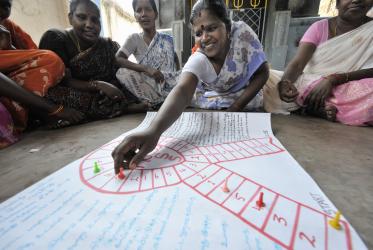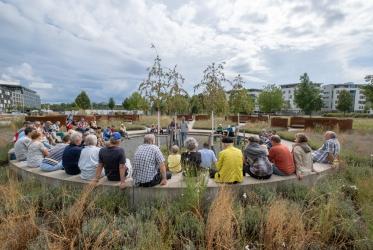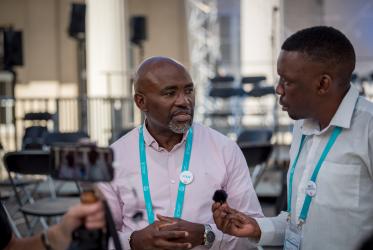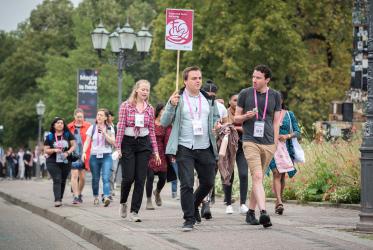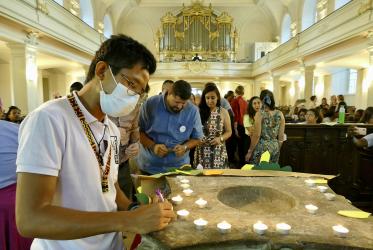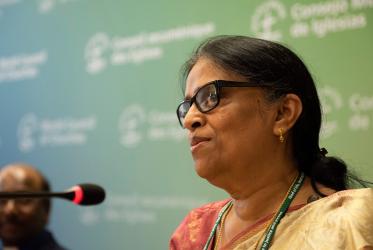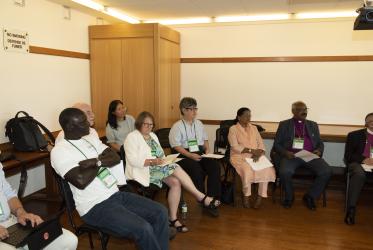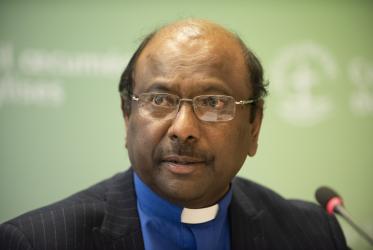Displaying 61 - 80 of 925
A look behind the scenes at the World Council of Churches 11th Assembly
23 September 2022
WCC 11th Assembly: safe and welcoming environment for all
19 September 2022
Workshop explores how interreligious dialogue brings trust and respect
15 September 2022
Dear future steward
08 September 2022
Indigenous women struggle for identity in Asia and beyond
05 September 2022
Assembly participants come together as church families
04 September 2022
WCC 11th Assembly opens—and “nothing can separate us from God's love”
01 September 2022
Water and justice at the WCC 11th Assembly
20 July 2022
127th Anniversary of WSCF: A Walk Down Memory Lane
28 June 2022
Lighting the lives of many
28 June 2022

